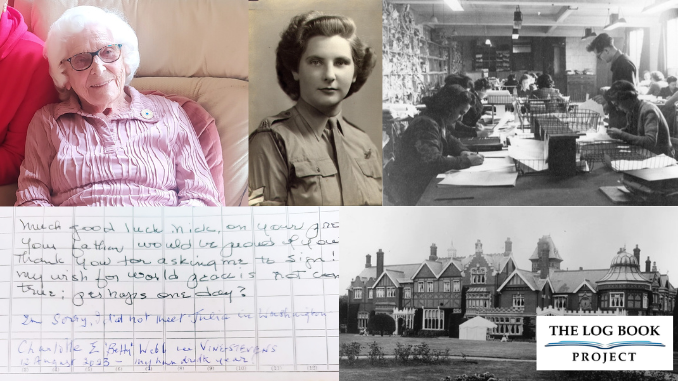
Charlotte Elizabeth “Betty” Webb (née Vine-Stephens) was born on May 13, 1923, in Richard’s Castle, Herefordshire, England. At the age of 18, in May 1941, she left her domestic science studies at Radbrook College in Shrewsbury to join the Auxiliary Territorial Service (ATS), the women’s branch of the British Army, seeking a more active role in the war effort. Her proficiency in German led to her assignment at Bletchley Park, the British government’s codebreaking center.[1]https://en.wikipedia.org/wiki/Betty_Webb_%28code_breaker%29
Early life and Auxillary Territorial Service (ATS)
Webb was named after her mother, Charlotte, but was commonly referred to as “Betty”. She described her childhood as ‘idyllic’, having grown up on the Herefordshire side of Richard’s Castle, in Ryeford. She was home-schooled for a significant portion of her youth. Her mother, Charlotte gave her and her brother home-school lessons. She was studying domestic science at Radbrook College in Shrewsbury at the start of World War II.
Webb’s proficiency in German was a cornerstone of her wartime service and stemmed from both familial influence and immersive experience. Her mother, recognizing the importance of language skills, emphasized the necessity of learning German to ensure Betty could navigate independently while traveling in Europe.[2]“Remembering Betty Webb: Bletchley Park And Pentagon Code Breaker,” Hackaday, April 3, 2025. https://hackaday.com/2025/04/03/remembering-betty-webb-bletchley-park-pentagon-code-breaker/ This early encouragement led to a formative language exchange in Dresden at the age of 14, where Webb lived with a German family, significantly enhancing her fluency through daily immersion .[3]https://www.europeremembers.com/en/stories/498/betty-webb
Webb signed up to join the Auxiliary Territorial Service as soon as she turned 18 in May 1941, and did basic training at the Royal Welch Fusiliers’ Hightown Barracks in Wrexham. From there she was taken to an interview in London at Devonshire House and then sent immediately to Bletchley.[4]https://kids.kiddle.co/Betty_Webb_%28code_breaker%29
Bletchley Park
Bletchley Park was the United Kingdom’s top-secret codebreaking center during World War II. It played a pivotal role in intercepting and deciphering enemy communications—most notably German messages encrypted by the Enigma machine. The intelligence generated, known as Ultra, significantly aided the Allied war effort and remained classified for decades.
Having been swiftly assigned to Bletchley Park due to her proficiency in German, Webb’s initial role involved cataloguing encrypted German radio messages intercepted by British forces. This task required meticulous attention to detail, as she registered messages on index cards—estimated at around 10,000 per day across the park—and organized them systematically for efficient retrieval. These messages, often in the form of seemingly indecipherable groups of letters or figures, were crucial for the codebreakers working to decipher the German Enigma cipher.
For security reasons, the work at Bletchley was compartmentalized, and Webb later recalled knowing “very vaguely” the true purpose of her tasks.
Webb was primarily stationed in the Mansion which was the original Victorian Gothic house on the estate serving as the administrative heart of Bletchley Park housing key offices.
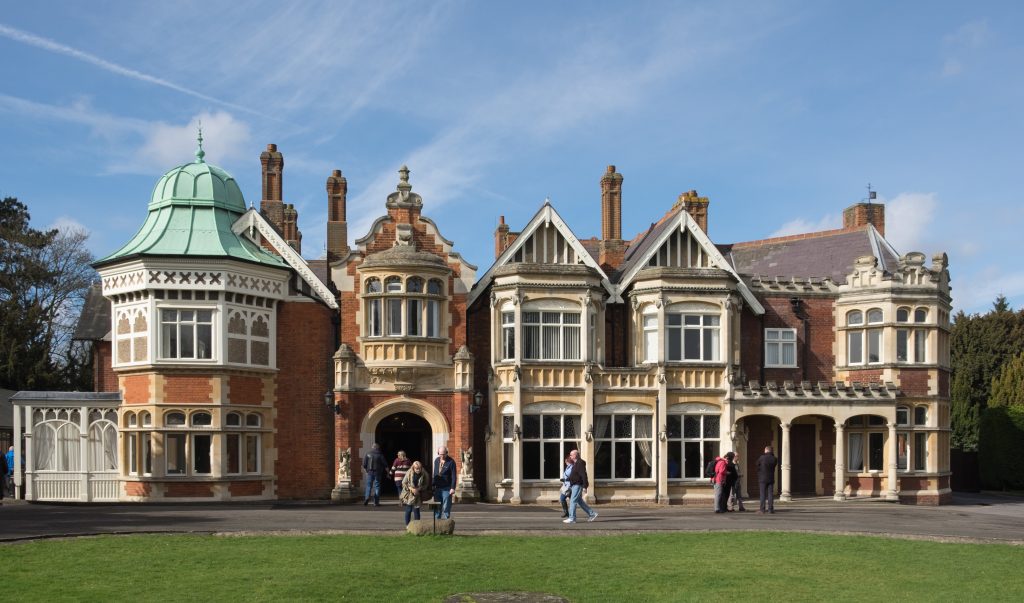
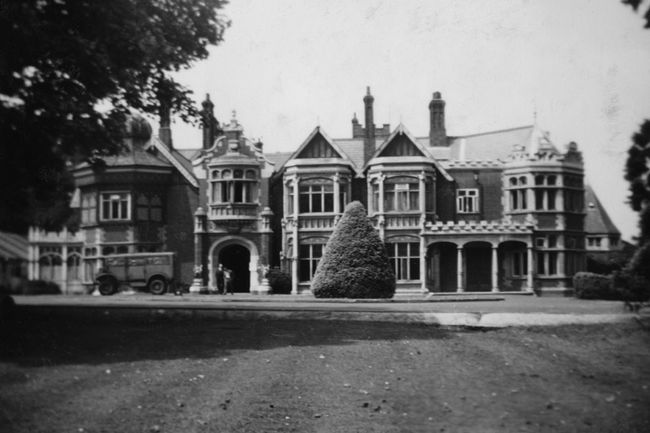
Japanese signals, paraphrasing in Block F
As the war in Europe neared its end, Webb was reassigned to Block F, the section focused on Japan. This reassignment reflected both a strategic shift toward the Pacific theater and recognition of Webb’s discretion and aptitude. Though not a Japanese linguist, she was trained to work with pre-decoded messages.
In her new role, Webb was responsible for paraphrasing decrypted Japanese military messages. These communications had already been decoded—often through Allied breakthroughs like Purple (high-level Japanese diplomatic communications) and JN-25 (Japanese naval operational code) — but needed to be rewritten in plain English for military use. The challenge was to conceal the fact that the Allies had broken Japanese codes, thus preserving operational secrecy.
This assignment was a critical part of the Allied effort in the Pacific, helping direct military decisions without alerting Japan to the source of the intelligence.
Pentagon, Washington D.C.
Her adeptness in this role led to her deployment to the Pentagon in May 1945 assigned to the British Joint Services Mission (BJSM) that was located near the White House in Washington, D.C.
Here she continued her critical work of paraphrasing decrypted Japanese military communications. The objective was to adapt the content of these messages into a form that concealed the fact that the codes had been broken, thereby maintaining operational security.[5]https://engelsbergideas.com/portraits/betty-webb-the-humble-codebreaker-who-helped-to-defeat-the-nazis/
This assignment made her the only member of the Auxiliary Territorial Service (ATS) to be posted to the Pentagon, a distinction she described as a “tremendous honour”.[6]“Betty Webb’s Secret War,” BBC News, April 2023. https://www.bbc.co.uk/news/articles/c78jd30ywv8o.amp
Also in Washington was signatory Julia Parsons who served in the U.S. Navy’s Women Accepted for Volunteer Emergency Service (WAVES) program. She was assigned to the Naval Communications Annex in Washington, D.C., where she worked in the “Shark” section decoding German U-boat messages encrypted with the Enigma machine. Her work was part of the OP-20-G unit, the Navy’s cryptologic organization.[7]https://veteransbreakfastclub.org/code-breaker/
While both women were in Washington, D.C., during World War II, their assignments were in different branches of the military and focused on different areas of cryptanalysis—Parsons on German naval codes and Webb on Japanese messages.
Given the strict secrecy surrounding their work and the compartmentalization of military intelligence operations at the time they never met, which Webb confirms in her entry in the log book. Regrettably we were never able to introduce these two remarkable women to each others.
Sworn to secrecy
Much like her US counterpart and fellow signatory Julia Parsons, Webb maintained her strict silence about her wartime service for decades—a reflection of the deep secrecy surrounding Bletchley Park and its operations.
Webb was required to sign the Official Secrets Act, a legally binding agreement that forbade her from disclosing anything about her work, not even to her closest family members. She later recalled being sternly warned that talking could be considered treasonous—a threat that loomed large over the thousands who worked at Bletchley.
As a result, for more than 30 years after the war, Webb said nothing about her role. Not her parents, friends, nor even future colleagues knew of her involvement in codebreaking. In interviews later in life, she described how difficult it was to live with that silence: while others spoke of their service and received recognition, those from Bletchley were forced to remain quiet, their contributions unknown and unacknowledged.
The declassification of Bletchley Park’s operations in the mid-1970s finally allowed Webb and thousands of others to reveal their roles. Only then did she fully comprehend the historical significance of her work—such as realizing that some of the German messages she had helped catalogue were communications between the SS and Gestapo, containing early evidence of the Holocaust’s atrocities.[8]“Betty Webb’s Secret War,” BBC News, April 2023. https://www.bbc.co.uk/news/articles/c78jd30ywv8o.amp
Legacy and honors
After coming forward, Webb became an active voice in raising awareness about Bletchley Park and the vital contributions of women in wartime intelligence. She gave public talks, participated in oral history projects, and, at age 100, published her memoir, No More Secrets, a title that reflected the decades of enforced silence she had endured.
Her contributions to military intelligence were formally recognized with several honors, including being appointed a Member of the Order of the British Empire (MBE) in 2015 and receiving the French Légion d’Honneur in 2021.
Betty Webb passed away on March 31, 2025, at the age of 101. Her work at Bletchley Park and the Pentagon played a significant role in the Allied war effort, and her later efforts ensured that the contributions of those who served in secrecy were brought to light.
Such was her service and dedication to promoting the work of Blecthley Park that the following was published on their website learning of her passing.
The Trust was very sad to learn of Betty’s death. She will be remembered, not only for her work at Bletchley Park during World War Two, but also for her efforts to ensure that the story of what she and her colleagues achieved is not forgotten.
Iain Standen, CEO Bletchley Park Trust
She was an unrivalled advocate and supporter of the heritage site that Bletchley Park is today. Whether through media interviews, events or books, Betty has been involved in spreading the word about Bletchley Park for many, many years. Our thoughts are with her family, friends, and all those who were touched by her warmth, dedication, and exceptional work.
Obtaining her signature
We are indebted to one of our many kindred facilitators, Mr Dee Vyas, who put us in contact with Webb and also assisted to facilitate her signature. Hosting Vyas in her home on 12 August, 2023 Webb signed the log book adding tremendous gravitas to the project.
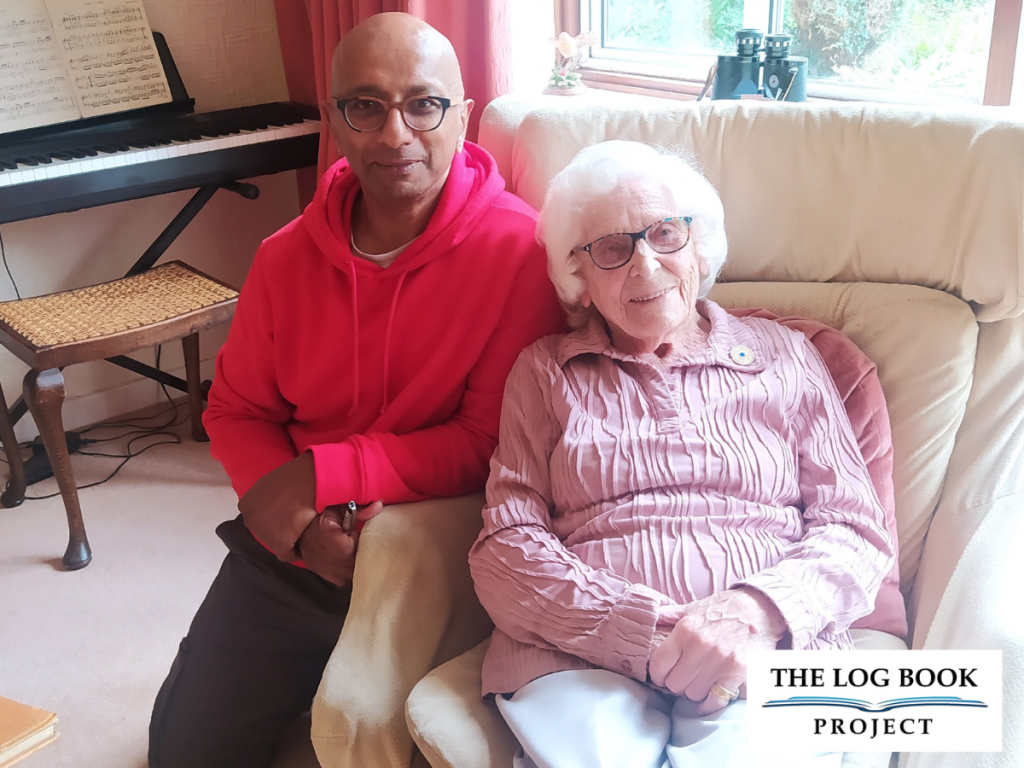
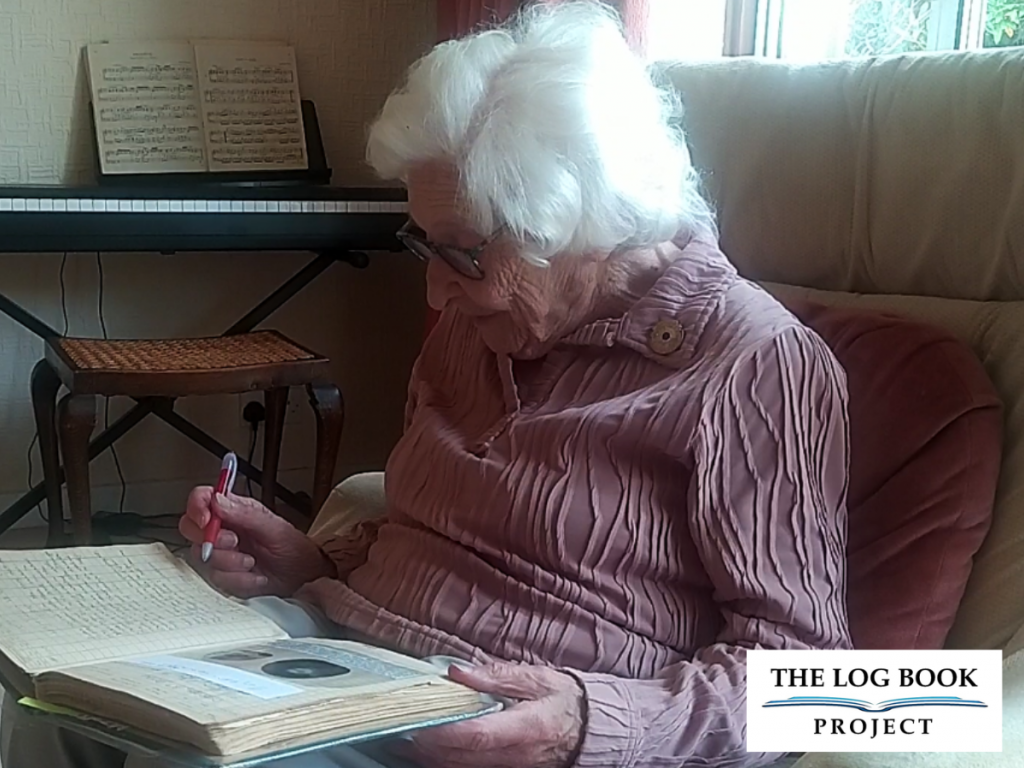
References



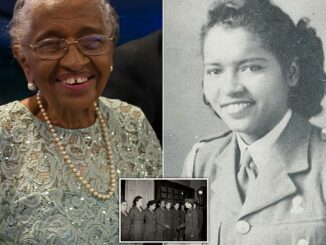
Be the first to comment